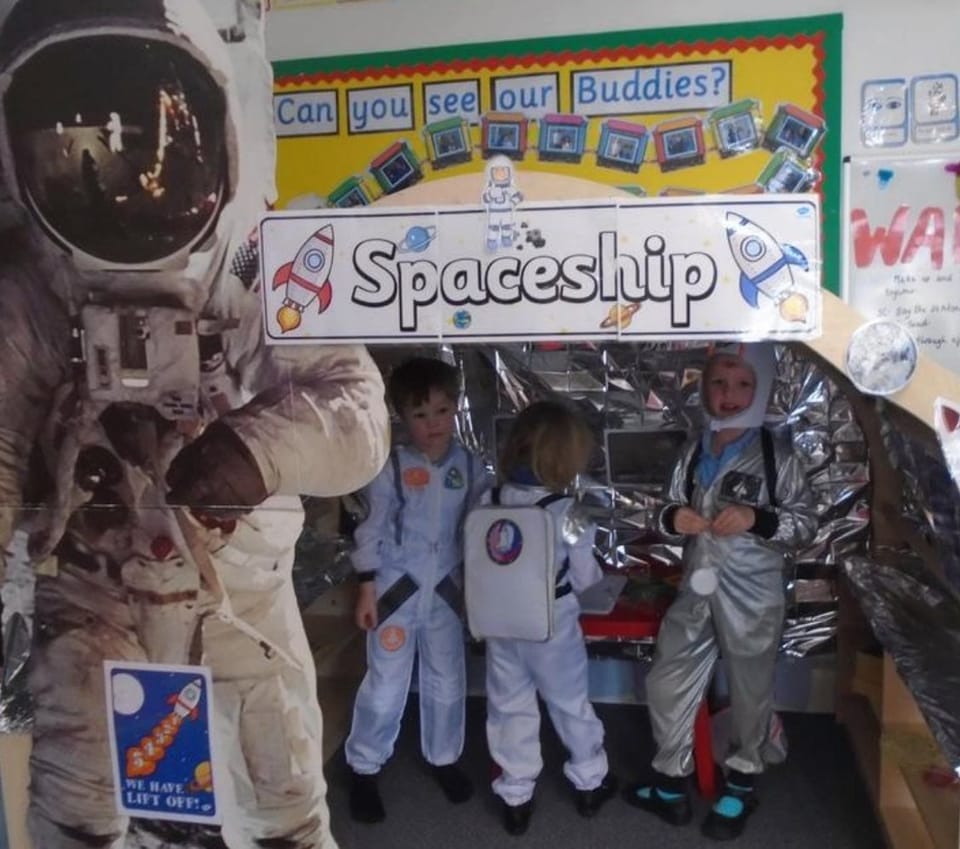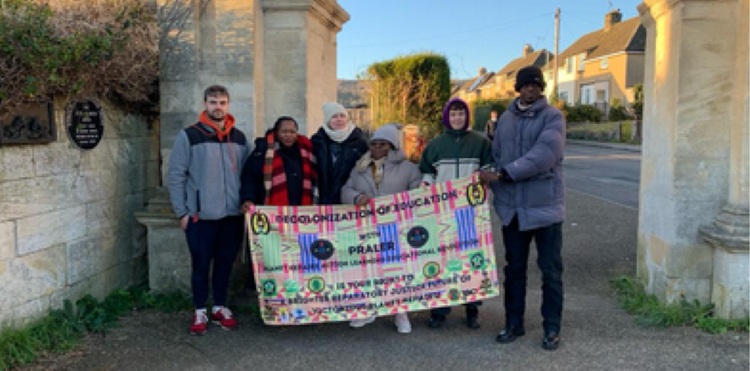Educators, Parents, and Children need an ambitious Covid Recovery Plan

By Megan Sheer
Parents don’t want a ‘thank you’, we want vision and ambition. We need a compassionate and ambitious recovery plan for the next generation.
The Covid pandemic has turned the lives of our children upside down. They have now spent almost a year socially isolated (for young children that’s a big chunk of their life). That’s meant a huge disruption and loss of freedoms for all children. And for too many there has been real trauma: nowhere to exercise, not enough food to eat, support services unavailable in the main. Poverty has worsened (a third of families with young children are experiencing poverty). Inequality has grown: black and minority ethnic families, families with disabilities and single parent families are all more likely to be experiencing deeper poverty. There has been a steep rise in depressive symptoms in children and many more will have been affected by the decline in mental health of a parent or guardian.

Closing our schools (a necessary measure but arguably something that wouldn’t have been needed for as long had the UK’s initial response to the pandemic been different) meant that the range of important things schools have provided – education, socialisation, nutrition – stopped. Disruptive and difficult for all school kids; disastrous for those for whom school is a life line. As Professor Russell Viner, president of the Royal College of Paediatrics and Child Health, put it to the Education Select Committee earlier this month: “when we close schools we close lives.”
Families have of course understood the vital importance of protecting the most physically vulnerable in our society. However, meaningful support for children has been stark in its continued absence. The Conservative government, once so determined to pursue austerity, has responded to the pandemic in a variety of unprecedented ways (widely referred to as a ‘wartime response’) and in many areas have had to abandon their tight control of the national budget. Where was the ambition and emergency funding for children?
In the first lockdown and the inevitable school closures, families were left floundering. Boris Johnson and the Education Secretary, Gavin Williamson, seemed to have no plan and the failures came thick and fast: lack of guidance on how to deliver teaching or how to handle social distancing for childcare who returned, a serious shortfalls in broadband and IT equipment (the Good Law Project launched legal action to force the government to act), the widespread deep distress caused by the exams fiasco, refusal to provide free school meals during school holidays (where footballer Marcus Rashford had to interven to help force a U-turn).
It appears that the government learned very few lessons in time for the second lockdown. Schools were reopened after Christmas against all logical advice and expectation (Although Williamson claimed ‘no one expected to see schools closed’) and then shut with less than a days notice. Teachers were under further pressure to provide simultaneous learning and support to children at home and at school. The government urged parents to report teachers to Ofsted if not perceived to be providing enough remote learning (parents chose instead to use the opportunity to tell them how brilliant our teachers are). Parents have been under pressure to keep their household running, often keep working, and facilitate their childrens’ education each day. Already stressed and lonely children have been expected to complete hours of worksheets at home (or for some kids at school, where most of their friends have been absent).
Outside of the school setting, there has been an absence of provision from central government for children in either lockdown, such as Covid-safe play schemes, extra enrichment/play resources outdoor learning schemes etc. Although under resourced local councils, charities and businesses have done their best to provide support when and where possible. With lockdown fatigue, cold weather and lack of daylight, the latest lockdown has been an awful time for so many, and inevitably, inequality and poor mental health has deepened even further. The pandemic has widened the already-serious attainment gap (difference in academic performance) that was already there for disadvantaged children.
As we approach schools reopening and with the benefit of a huge wealth of research, evidence and testimony into the damaging effects of school closures and lockdown on children, we might expect the announcement of an ambitious recovery programme. We might expect consultation with teachers, heads, unions, mental health experts. We might expect Boris Johnson and Gavin Williamson to enthusiastically accept invitations from our media to talk about their plans for reforming education (oh so necessary even before the pandemic).
None of this has yet occurred. There has been a lack of scientific rationale on the reopening of schools, and a lack of communication that has left teachers and experts furious and frustrated. Following a weak and frothy open ‘thank you’ letter from Johnson to parents that was empty of real understanding or reassurance for the future, the dominant top-down message so far is that children must ‘catch up’ and the best way to do this is to lengthen the school day or shorten the holidays – this clashes starkly with teachers’ and headteachers’ views. The recently-appointed Education Recovery Tsar, Sir Kevan Collins, brought in to ‘oversee comprehensive programme of catch-up aimed at young people who have lost out on learning due to the pandemic’, has said that teachers would be asked to ‘increase learning time for children to catch up’ and that currently a number of options – including summer schools, extended school days and shorter summer holidays – are being considered.
Being expected to work even longer hours has not been received well by running-on-empty teachers. Evidence shows that increasing time in the classroom is an ineffective way of closing the attainment gap. The National Union of Teachers (NUT) has said it’s a ‘superficial and ineffective solution’ and the National Association of Headteachers (NAHT) said ‘Research evidence shows that there are better methods to help pupils than lengthening the school day. The government must filter out loud calls for superficially attractive schemes and listen to the experts.’
Teachers know what works and what doesn’t and so far are not being adequately consulted. Sweeping external initiatives and meaningless soundbites with no basis in reality (‘levelling up’, ‘we’re doing everything we can to support you’, ‘we’re in this together’, ‘level playing field’, ‘we recognise the pressures children face’ ‘our focus is on delivering the very best’ ‘burning injustices’…) have failed to inspire confidence. NAHT General Secretary Paul Whiteman said in a letter to headteachers:
“Top-down solutions dreamt up in Westminster are not what is needed here. Instead, the government needs to trust the experts. They need to trust you. Supporting pupils as they return to a sense of ‘normality’ is about so much more than quick academic fixes. It is a long-term project that focuses on supporting children socially and emotionally, as well as academically. Short-term academic ‘cramming’ or a race to ‘catch up’ will, at best be counter-productive, and at worst be potentially harmful.”
While it’s encouraging that Sir Kevan Collins has mentioned the importance of sport and creative arts (in recent years squeezed brutally out of the primary curriculum), if implemented, provision would be within this increased learning time and not in the permanent curriculum where it should be. (It will be interesting to see how Kevan Collins and Gavin Williamson work together. Williamson has earned the dubious honour of being probably the least popular Education Secretary in our history. It is perplexing that he is still in cabinet – the only explanation is that he is being positioned to be the ‘fall guy’ for the mess the government has made of education policy: cold comfort for children suffering the effects).
Of course, parents don’t want the attainment gap to widen even further than it already had been under Conservative leadership, and we all want our children to receive high quality education. Now is probably a good time to highlight just how unsuccessful our current curriculum, a legacy of Micheal Gove’s period of Education Secretary, has been. Far from improving educational standards, the consequences has been that inequality has grown and a reduced number of children now go on to complete their education in the core subjects. In addition, reduced funding, pay and working conditions has meant stressed and uninspired teachers have left the profession in record numbers. Is it not reasonable to ask, ‘what have we got to lose?’ Is this not a moment of opportunity to completely reform our children’s experience of education? These are rapidly changing times and this is the ideal moment to shift course, particularly given the failures of recent years.
We want our children to recover from their isolation, practice their social skills, receive a good education and experience pursuits and activities that bring them joy. So what are teachers and health experts proposing?
The emphatic message from teachers is that they want to get children back into the classroom and assess themselves where the gaps are and what is needed in response to the specific needs of their cohort. Other suggestions: increase the pupil premium (the grants given to schools to decrease the attainment gap); invest in teachers and in small group learning / one-to-one support; increase funding; overhaul the curriculum that has long been failing children and is now under the spotlight as being ineffective and non inclusive.
Mental health experts are also increasingly frustrated that they are being largely ignored. Their warnings are widespread and grave. Despite numerous mentions and soundbites, repairing children’s mental health has not yet been explored in any meaningful way. And the negative government narrative is one of setting kids up for failure. There is a constant focus on what learning has been lost without recognition of what might have been gained. Increased pressure once back at school will only deepen the impending crisis. And ‘catching up’ / sustaining a good job in the future is impossible without sound mental health. Doctors, public health and mental health experts continue to highlight the obvious importance of play and social contact. Given the high infection rate in the UK and the lack of definitive knowledge into how children spread the virus, it has of course been a difficult situation to handle. But where is the roadmap out of social isolation for children? Entering a second year of covid restrictions, children are forgetting how to play and interact. Sunil Bhopal, paediatrician and lecturer in child health:
“Children need children. Is stopping them playing together really necessary to control this pandemic? Because I really care about controlling the pandemic, but the government hasn’t given us a good reason why children are not allowed to play together outside… We are seeing sadness and distress. If we want children to grow, develop and thrive they have to be able to play and interact with each other.”
Now is the time to put children at the front and centre of our recovery plan in the UK. Imagine what would be possible if we moved away from treating schools like businesses and used this opportunity to devise a new curriculum for our changing country and world that acknowledges what hasn’t worked and builds on what does. The Department for Education should be in close consultation with teachers, mental health experts, play experts, parents, artists, scientists, sports people, youth mentors, play workers. Many people from these categories could be re-employed having lost their jobs during the pandemic. Throughout the pandemic we’ve seen some really heartening, supportive and imaginative ideas for helping children from local councils and charities (many of which are chronically underfunded) and from parents, grandparents, play organisations, local parenting groups and businesses. People are stepping up to talk with vision and hope about children and their future. Where is the government? They are stuck on the ‘catch up’ phrase and all the insidious pressure implied in it. Well we need Boris and Gavin to ‘catch up’.
As we begin to emerge from the Covid crisis, we must now protect those who are most vulnerable to the lasting effects of the pandemic and we must be ambitious. Ultimately we won’t achieve the progress children deserve without spending money. The argument that there is ‘no magic money tree’ won’t wash any more, given how readily the government has provided funds for furlough, failed PPE contracts and it’s disastrous test, track and trace system, amongst other things.
Our politicians seem to have forgotten that they are our (well paid) public servants. They work for us and we must demand leadership, competence and vision. Where that is absent we should demand their resignations. Even if you don’t have children in school, the emerging crisis for children ultimately affects us all – investing in this generation is investing in the future, and we need to speak up for them before it’s too late.
If you haven’t already, please take a minute to sign the petition.

Megan Sheer, mother to two children, aged seven and ten, Stroud, Gloucestershire.





Member discussion